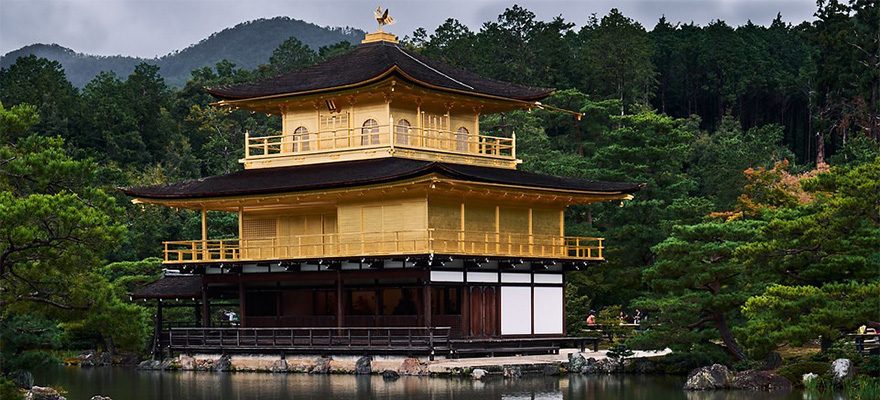

Sébastien Lachaussée & Elisa Martin-Winkel
Coproduction between France and Japan
The cultural relations between France and Japan have always been rich and numerous. This is also reflected in cinematography. Thus, French films are successfully exported to Japan, with € 10 million in revenue in 2017 and a sixth place in the ranking of countries in terms of revenues. Also, the exhibition of Japanese films in France is constant and represents about 10 films per year between 2009 and 2018.
In this respect, it is interesting to consider the mechanisms allowing a French producer to participate in the production of Japanese films.
It should be noted in the first place that France and Japan have not established an international co-production agreement allowing the film to be treated as a national film and to be entitled to the full enjoyment of the benefits reserved to national films in both countries. Also, it is important to consider the best possible arrangement to ensure the financing of a Japanese work, notably without the benefit of the CNC automatic support fund in France.
In the presence of renowned filmmakers, it is possible to consider receiving support from television channels, distributors and international sellers or SOFICA. For example, Arte Cinéma co-produced Naomi Kawase’s « Still the water » and France 3 cinéma participated in the financing of Eda’s « The truth », released in December 2019. As for distributors and sellers, they can propose guaranteed minimums payable in part prior production of the film and in any event commutable.
On the other hand, with young filmmakers such contributions are unlikely or weak, and only state aid in Japan and France should be considered.
Financing funds in Japan
In terms of financial support Japan is not particularly aiming to encourage coproduction. There is no tax incentive and only one subsidy program exists, administered by Agency for Cultural Affair.
This subsidy does not rely on bi-lateral co-production treaties but works in conjunction with the UNIJAPAN Certificate. Indeed, such certificate that aims to promote co-production between Japan and other countries by being the standard for official co-production in Japan is required to apply for the Japanese co-production subsidy.
Japanese producer shall apply for the subsidy and the qualifying expenses must at least reach 100 M Yen (approx. 830 000 euros).
The subsidy is established at 20% of the qualifying expenses up to 50 M Yens (approx. 415 000 euros) but can be selectively increased to100 M Yen (approx. 830 000 euros) for the films with a budget higher than 300 M Yens (approx. 2,48 M €).
The subsidy is selective and is paid after completion of the film, which can be a constraint for the producers. Qualifying expenses is not restricted to expenses incurred within Japan but must be incurred within the financial year of the subsidy.
We can also evoke the Cool Japan Fund. It was founded in 2013 as a public-private fund with the aim of supporting and promoting the development of demand overseas for Japanese products and services and notably media and contents.
As an example, it participates in the establishment of the Japan Contents Factory Investment fund. This fund is dedicated to contribute to the development of the Japan content industry and the distribution of the Japanese content overseas by providing a platform to raise funds for production companies. Therefore, the fund will participate to the production of content.
The Cool Japan Fund also invested in North American Anime Group Led by Sentai Holdings Cool Japan Fund aims to increase the overall presence of Japanese anime in the North American market. A similar initiative could be developed for the European aera.
Aide au cinéma du monde – World cinema fund
Aide au cinéma du monde is a French selective fund, and is granted as a subsidy either before or after completion of a project. It is granted to foreign feature-length film projects that are seeking support from French co-producers
There is a ceiling of € 250,000 for pre-filming subsidy (with an average of € 120 000 per film) and of 50,000 for post-filming subsidy (in general between 30 000 and €50 000).
As examples « Yokogao » de M. Kôji Fukada was granted with pre filming subsidies up to € 130 000, « Hikari » de Naomi Kawase up to € 100 000 and “Voyage sur l’autre rive” de Kiyosi Kurosawa with€ 150 000.
It must however be reminded that the amount awarded may not exceed 50% of the French financing part. However, this limit is raised to 80% if the project is a director’s first or second feature-length film, for films with a budget lower than € 1,25M .
Eurimages
We can also note that a support from Eurimages is possible subject to fulfilling the criteria.
Annual budget is up to 26 M euros and the amount can reach € 500 000 for fiction and animation picture and 25% of the budget capped at € 500 000 for documentaries.
We can evoke that “The truth” by Kore-eda co-produced notably by French and Belgian producers was supported up to €116 000.
Producers must respect pretty strict conditions: co-productions treaties must me enforced, 50 % of each coproducers financing shall be secured, non European co-producers’ share may not exceed 30% and majority co-producers’ share can not exceed 70 % and the participation of each minority co-producer must not be lower than 10%. In the case of a bilateral co-production, the participation of the majority co-producer must not exceed 80% of the total coproduction budget and the participation of the minority co-producer must not be lower than 20%. Notwithstanding the above, in the case of bilateral co-productions with a budget superior to €5 million, the participation of the majority co-producer must not exceed 90% of the total co-production budget
In view of the above, it appears that collaborations between France, European and Japan producers offer possibilities for financing and can be considered in the context of the development and production of films. Within such international collaborations, it is essential to ensure that the relationships between producers and their partners are effectively framed both for development, production and distribution of the films. To do so and in order to meet the needs of the producers, it is strongly advised to resort to a specialized legal counsel.
SHARE THIS ARTICLE
CONTACT
OUR OFFICES
INFORMATION
sl@avocatl.com
PHONE
+33.1.83.92.11.67
Address
121, boulevard de Sebastopol
75002 Paris
5th floor / Staircase A
Follow us :
Newsletter
Please enter your e-mail :
